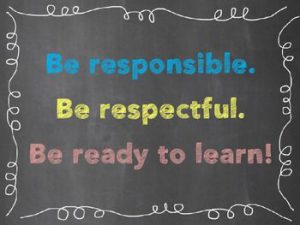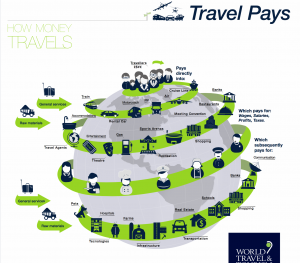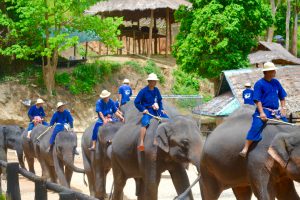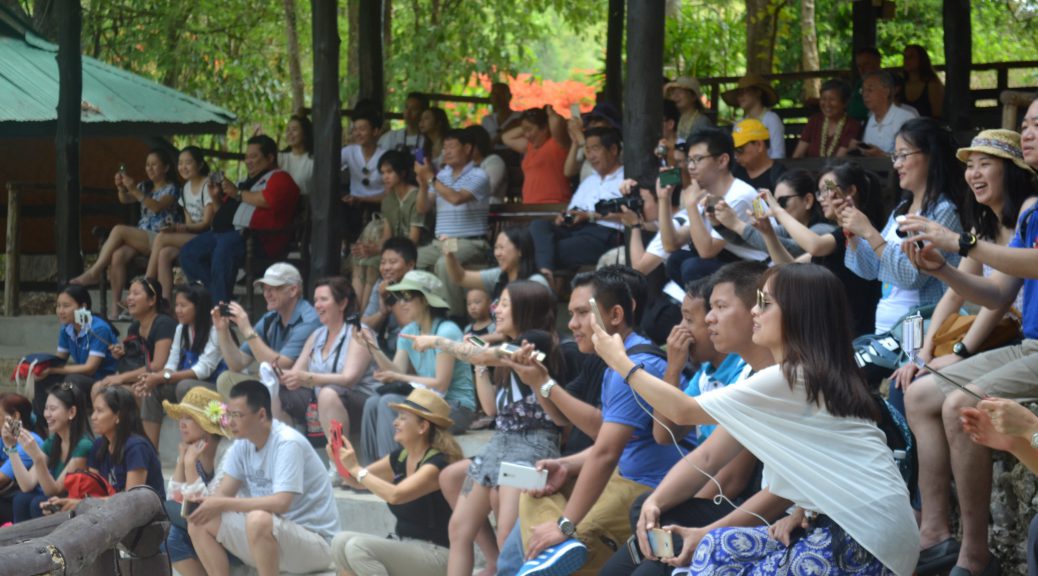Effects of Tourism
Tourism industries and practices around the world call ethics into question. Specifically focusing on Thai tourism through the lens of an American tourist, many of the attractions have recently been brought to light, focusing on the lack of sustainable and/or ethical practices. According to Thompson-Reuters, an estimated 30 million foreigners visited Thailand in 2015, contributing 2.21 trillion Thai Baht (about $60 million USD) to the country’s GDP. This is a huge portion of the economy, but with questionable practices in some areas, it’s important to delve deeper to understand the country’s tourism industry.
Part I: Ethics of Tourists
As a traveler and tourist myself, while researching for what practical ethics are considered appropriate for travelers such as myself– it was much easier to ask myself, how do I act to ensure that I am responsible, respectful and ready to learn? It was very easy. I thought back to when I was a child in school. We were taught (and to this day still should be practicing these), the three Rs.

We could list hundreds of tips and ethics of being a tourists in another country but the foundation of this results to the basic morals of being a human. First, be responsible for yourself, your actions, words and how that impacts the environment and others. Secondly, be respectful of yourself, others and their differences (including their values, morals, traditions and space) and lastly, be ready to learn, meaning you should be open minded.

Is the glass half full? Half empty? Full? Empty? Does it really matter?
As a tourist, in my personal experience, I have been let down due to my overly filled expectations of the country and what kind of experience I should get from it due to social constructs and influences. When I go into a country knowing everything I think I could possibly know–I delete the opportunity to learn from my own and on my own. Having too much expectations lead to disappointment and that itself impacts your ability to truly enjoy the true potential of traveling and being immersed in the beauty of the destination.

According to the Global Code of Ethics for Tourism 2010, a collected summary of tips to help foster ethics of tourists consisted of: Honouring local traditions and customs, supporting the local economy, respecting the environment and being informed and respectful.
Honoring Local Traditions and Customs
This would be the time to reflect and ask yourself how much you already know about the destination and whether or not it is appropriate and helpful to learn a few things about it. Whether you decide to or not, it is always helpful to do some research about the destination’s local traditions and customs. This will help you as an outsider coming in, understand the local community and jump start the journey with some excitement. This could include, learning a few local words to help communicate with the local people and have more meaning. Experience and respect all that makes an international destination different and unique from its history, architecture and religion to its music, art and cuisine
Supporting The Local Economy
Throughout Thailand, I was constantly reminded and even without reminder, I knew I wanted to buy local handicrafts and products. This was extremely difficult because of how plagiarized or otherwise noted as “inspired” by designs and clothings of ethnic groups in Thailand. I could never identify whether or not I was supporting the locals or just buying manufactured goods which leads to the tip of avoiding counterfeit products. Unfortunately, it is common that many countries do not have policies that regulate this. Unlike the United States and many other “power house’ countries, Thailand along with a list of developing countries buy the American dollar at a higher rate than most other developed countries. Because of this, it is always good to keep in mind the act of bargaining. You can bargain but you should do so respectfully and keeping in mind a fair trade or transaction. Your purchase may be supporting the cost of living of not just the seller but also the systems and communities that benefit from it. The picture below outlines the breakdown of our travel and it’s impact of multiple systems.

Respecting the Environment
It is suggested that you reduce environmental impact through being a good steward of natural resources and archaeological treasures. This includes protecting wildlife and their natural habitat, purchasing only goods and products that are not made from endangered plants and or species, fostering the life and growth of nature by taking pictures as an alternative momento of your trip.
Being Informed and Respectful
This portion highlights the importance of obeying rules and laws in your destination as any other country much like our own home country. Please observe national laws and it’s regulations as these are legal laws that ensure safety and harmony for all. The rules are as it would be in your own home. Being informed and respectful also includes respecting the basic human rights. As a child we were taught to treat others how we want to be treated so it is a basic foundation across the board regardless of where you go. In different countries with different social values and traditions, it will be difficult to see this simple rule and sometimes it is close to non existent. However, as an individual I believe we can make that decision to do better and make that choice in loving and caring for others as we would for ourselves. Coming to Thailand and spending over 2 weeks here, being treated so well reminded me of the social construct of classism. I may not see it but for everyone else it probably exists in Thailand. As a host I am privileged to eat first and served first. As a tourist, I need to be aware of this privilege and make sure that it is not oppressing anyone else.
The third point is to protect children from exploitation both in travel and tourism. In Thailand such subtle things didn’t occur to me as child exploitation until I saw how massive it was occurring across multiple cities. Things like children selling goods or begging for money on the street.
The last point is self-care. While traveling is an amazing thing, we often forget to take care of our self both physically and mentally. This includes taking safety and health precautions with everything you do, knowing your limitations and being alert while allowing yourself to try new things and being informed of how to access medical care in the case that you need it. Unlike our group, many people travel alone and this goes to say that you are responsible for yourself in case of an emergency it is your responsibility to take care of you before all else.
Part II: Ethics of Tourism
In exploring this topic, we had to also think about the ethics of tourist attractions as a whole. Being a global citizen and informed traveler also comes with an added responsibility of doing research and making sure that they are supporting tourist and local attractions that are ethical and add value to the community.
Elephant Camps
Elephant training and camps have been around for a long time, but the questionable practices of phajaan, or crushing the spirit of an elephant, has only recently come to the attention of many. Looking at it simply through the lens of an American tourist, it’s wrong. The elephants are treated horribly and tortured at a young age in order to populate the camps and attract tourists. However, it’s easy to look at this problem and make an opinion black and white. I’m not saying that phajaan is okay, I’m saying that there’s more to the story. Part of being a global citizen is understanding cultural differences and taking a step back to look at the whole picture. Taking time to dig deeper and truly understand the tourism practices is important. For example, elephants are endangered; these camps are attempting to breed more and increase the population. There is also a deep bond between the mahout and his elephant. They stick together and the elephant trusts the mahout, and this practice has been taking place in Southeast Asia for a very long time, even before elephant camps existed.

Part III
This post isn’t trying to say if certain practices are right or wrong, it’s trying to say don’t look at things black and white (this can apply to more than just tourist attractions), take the time to truly understand the context and deeper reasons for why things are the way they are. Researching and cultural understanding together feeds into a better cultural awareness, and accepting these differences.
Part III: More information & resources
Practical Tips For The Global Traveler
http://expertvagabond.com/elephants-in-thailand/
http://ethics.unwto.org/en/content/global-code-ethics-tourism-article-1



